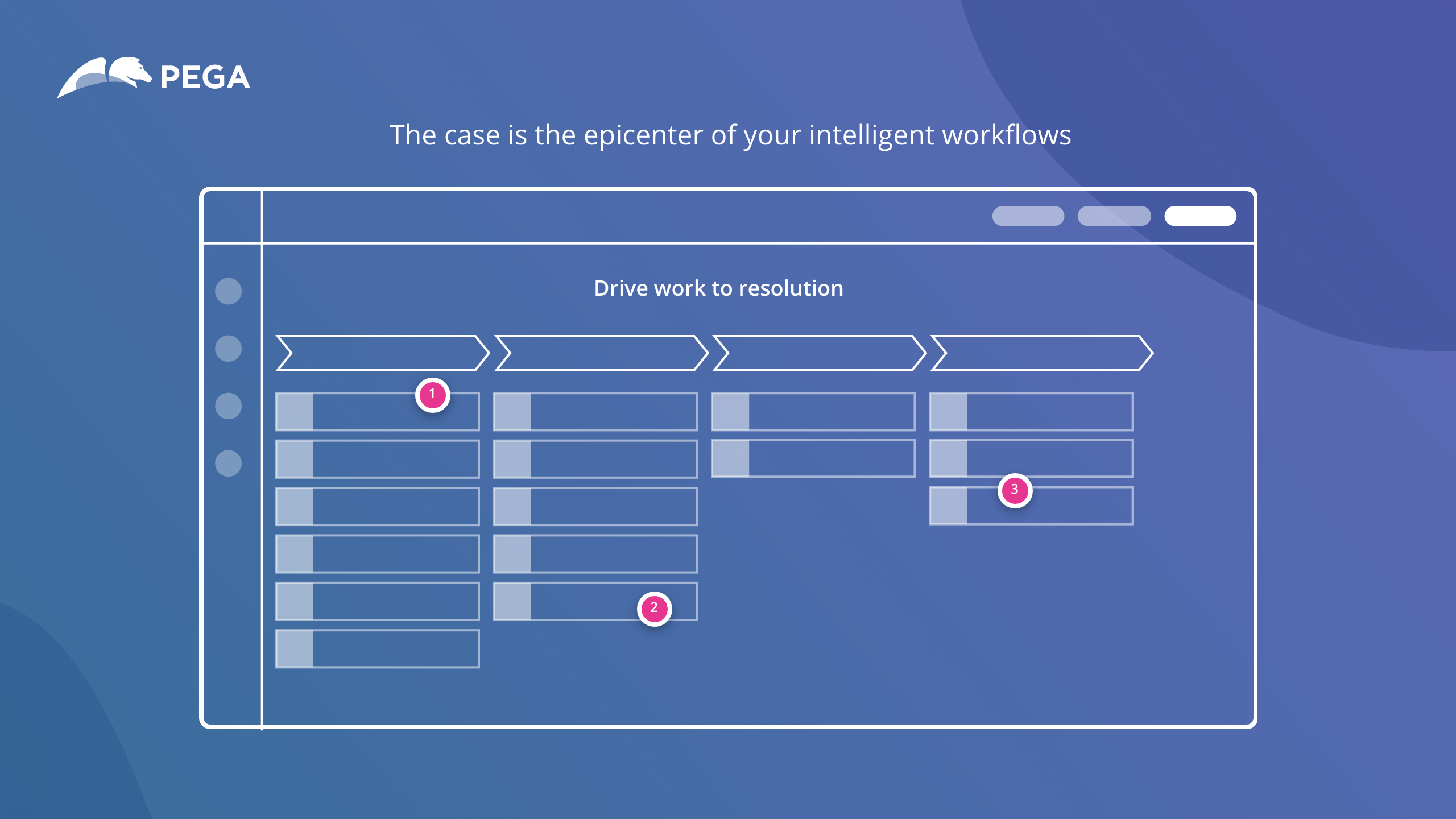
Trasformazione, accelerata
Ripensa i sistemi legacy e migliora i flussi di lavoro con la piattaforma basata su IA per trasformare interamente la tua azienda.

Creiamo risultati.
Pega è progettato per gestire i tuoi percorsi più critici. Scopri le nostre soluzioni principali.

Hai un'idea? Trasformala in realtà (e nel modo giusto) in pochi minuti.
Prova Pega Blueprint™
Per la progettazione del flusso di lavoro
La tecnologia di cui tutti parlano? Eccola! Trasforma le tue idee da schizzi su un tovagliolo ad app funzionanti.
Prova Pega Customer Engagement Blueprint™
Per la progettazione della customer experience
Customer journey 1:1? Strategia di marketing? Ora puoi automatizzare entrambi in pochi minuti.
Team responsabilizzati che svolgono un lavorodi valore superiore
Grazie alla digitalizzazione dei processi e all'automazione del lavoro, Cisco ha riassegnato il 60% del personale amministrativo a mansioni di maggior valore che migliorano la customer experience.

Una storia di innovazione nel campo dell’IA
Oltre 40 anni fa, Alan Trefler ha sviluppato alcuni dei primi bot di scacchi in grado di giocare a scacchi a livelli altissimi.
Ha applicato lo stesso principio alla tecnologia e all’impresa con l’obbiettivo di rivoluzionare completamente l’agilità aziendale.
Ha applicato lo stesso principio alla tecnologia e all’impresa con l’obbiettivo di rivoluzionare completamente l’agilità aziendale.
Consigliato per te

Scopri perché
la trasformazione aziendale è il nostro punto di forza
Grazie alla nostra filosofia di evoluzione continua integrata nei nostri processi possiamo offrirti soluzioni a prova di futuro.












